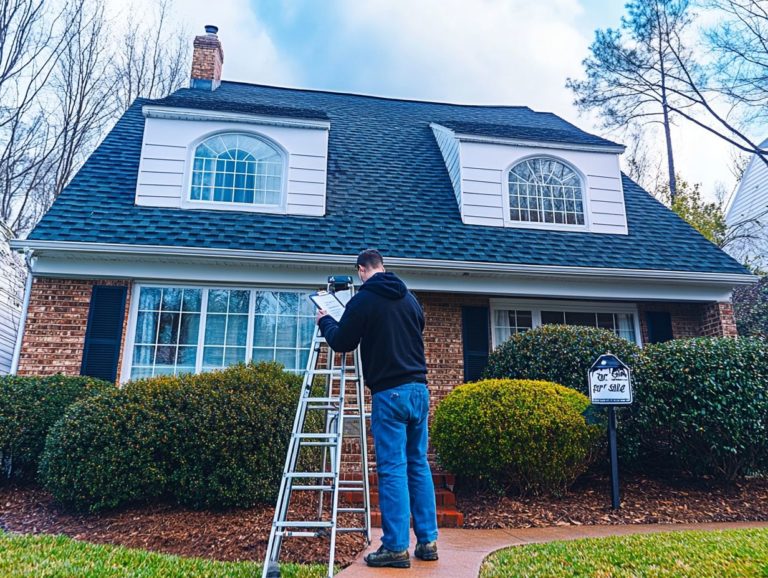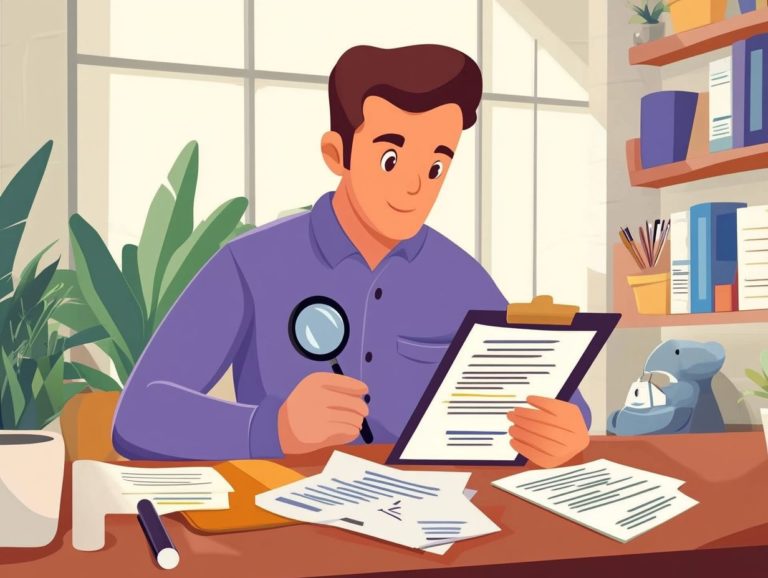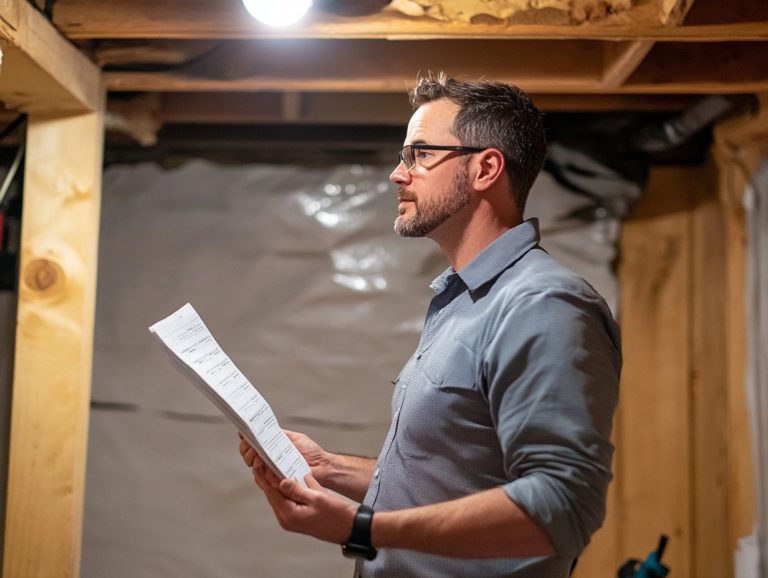The Importance of Pest Inspections
Pest inspections play a vital role in ensuring your home remains a safe and healthy sanctuary. They are essential for identifying potential infestations and protecting against costly damage.
This article delves into the intricacies of a pest inspection, highlighting the types of pests you should watch out for and the unmistakable signs of an infestation. It also emphasizes the significance of regular inspections, offers guidance on how to prepare for one, and provides tips for selecting the right pest control company.
By the end, you’ll be well-equipped to defend your home from those unwelcome intruders!
Contents
- Key Takeaways:
- Understanding Pest Inspections
- Types of Pests to Look Out For
- The Importance of Regular Pest Inspections
- How to Prepare for a Pest Inspection
- Choosing a Pest Control Company
- Frequently Asked Questions
- What is the importance of pest inspections?
- How often should pest inspections be done?
- Who should conduct a pest inspection?
- What types of pests are typically included in a pest inspection?
- What are the consequences of not getting a pest inspection?
- Are there any precautions to take before a pest inspection?
Key Takeaways:
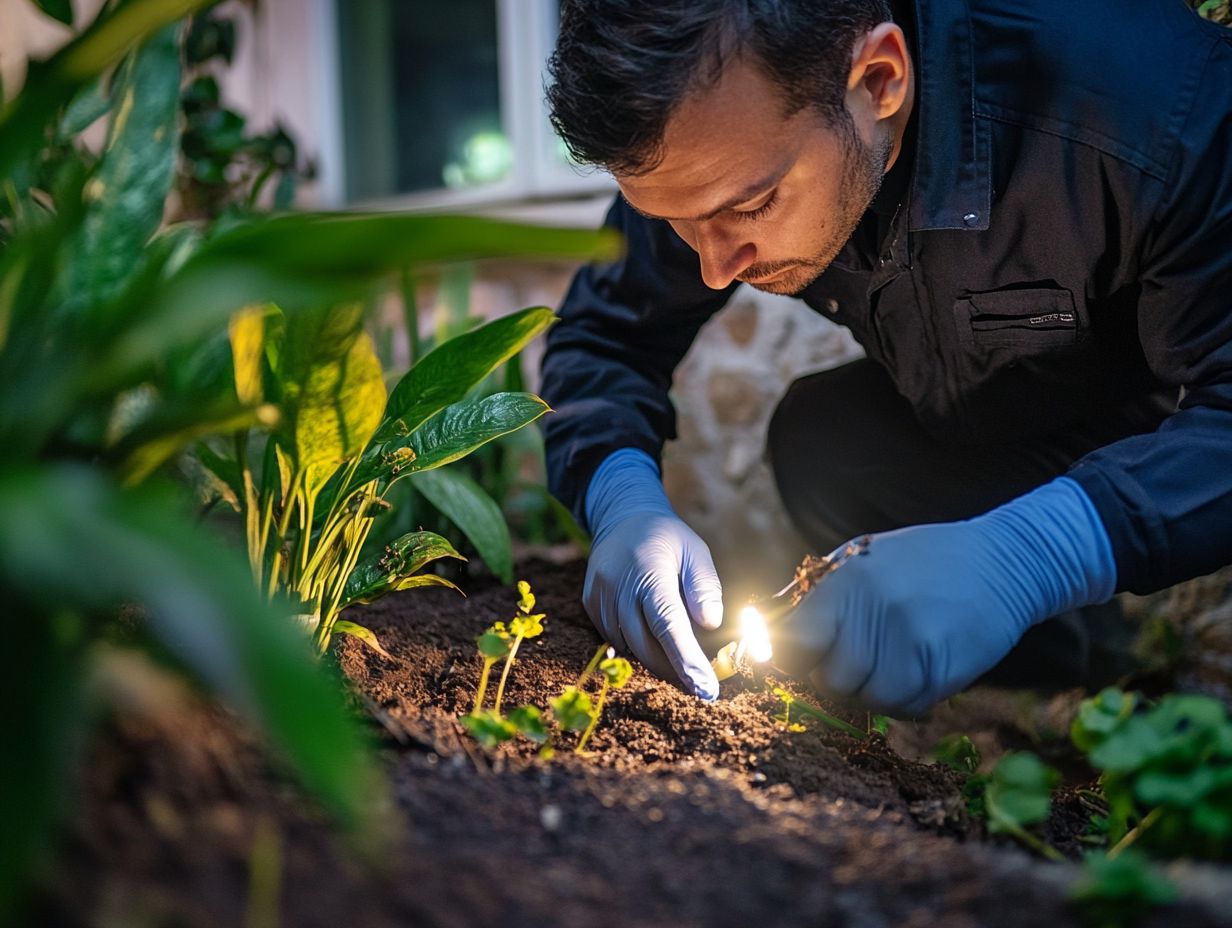
Regular pest inspections are crucial for preventing costly damage to your home and maintaining a healthy living environment. Additionally, understanding the importance of a home inspection for buyers can further protect your investment.
Some common household pests to look out for include rodents, termites, and bed bugs. Knowing the signs of infestation can help catch and address the problem early on.
When preparing for a pest inspection, take steps such as clearing clutter and repairing any potential entry points for pests.
Consider factors like experience and certifications when choosing a pest control company.
Understanding Pest Inspections
Understanding pest inspections is essential for preserving the integrity of your property and fostering a healthy living environment, as highlighted in the importance of pre-purchase home inspections.
These inspections evaluate the presence of common pests like termites, rodents, and carpenter ants. Understanding the need for home inspections is crucial, as all of these pests can cause structural damage and present serious health risks if not addressed promptly.
Implementing effective pest management strategies helps significantly reduce these risks and avert the economic consequences associated with pest infestations.
A thorough pest inspection checklist helps you detect pest activity early, facilitating timely intervention and the deployment of effective pest control solutions.
What is a Pest Inspection?
A pest inspection entails a meticulous examination of your property conducted by pest management professionals. The aim is to uncover signs of pest infestations and identify potential entry points, making it crucial to understand the necessity of home inspections.
During this essential evaluation, experts employ an array of advanced tools like thermal imaging cameras, which are devices that can see heat to find hidden pests, moisture meters, and professional-grade traps to detect hidden infestations that might escape the untrained eye.
You can expect inspectors to focus on common areas where pests often thrive, such as basements, attics, and around plumbing fixtures.
The outcome of this thorough assessment is a comprehensive pest report. This report helps you understand your pest situation and recommends effective treatments. Such reports are crucial for maintaining your property and ensuring a safe living or working environment.
Types of Pests to Look Out For
Grasping the various types of pests that often invade homes is crucial for implementing effective pest management and prevention strategies.
Among the most common culprits are:
- Termites, notorious for causing substantial structural damage;
- Rodents, which present health risks through contamination;
- Carpenter ants, known to exacerbate existing moisture issues.
Additionally, cockroaches, bed bugs, fleas, and mosquitoes can complicate your pest problems. Recognizing the signs of pest activity early on allows you to tackle infestations before they escalate.
Common Household Pests
Common household pests can wreak havoc on your property and lead to a host of pest-related issues. These unwelcome guests threaten not just the structural integrity of your home but also the health and safety of everyone inside.
Termites are particularly insidious, silently feasting on wooden structures and often going unnoticed until it s far too late. Rodents, on the other hand, leave their calling cards in the form of droppings that can contaminate food sources while being carriers of various diseases.
Carpenter ants are notorious for hollowing out wood, which can result in long-term damage if left unchecked. It s crucial to recognize the signs of an infestation like droppings, strange noises, or visible damage so you can act swiftly.
By staying proactive, you can significantly reduce the impact these pests have on your property and your peace of mind.
Don’t wait! Schedule your pest inspection today to safeguard your home!
Signs of Infestation
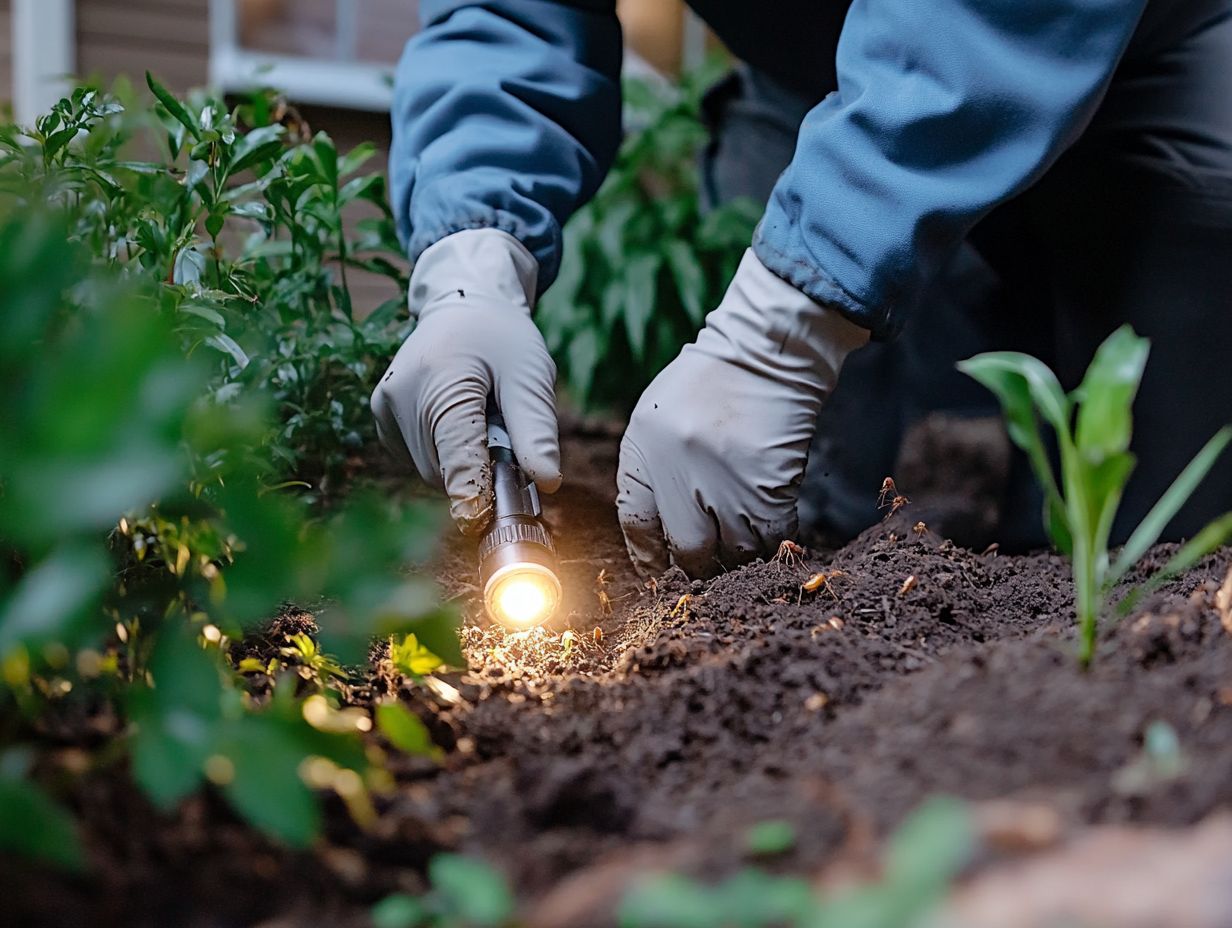
Noticing signs of pests is crucial for taking prompt action. Many pests display specific behaviors and damage patterns that indicate their presence.
For example, discovering droppings varying in size and shape depending on the pest often serves as a clear warning sign. You may also notice gnaw marks on wooden surfaces or food packaging, suggesting that rodents or certain insects are making themselves at home.
Physical sightings, like a line of ants marching across your floor or a moth fluttering near a light, demand your immediate attention.
Using simple pest checks can significantly enhance your ability to identify these issues early on. By regularly inspecting potential entry points and utilizing traps or baits, you can keep track of pest activity. This ensures timely intervention and minimizes the risk of a substantial infestation.
The Importance of Regular Pest Inspections
Regular pest inspections are your best defense against costly damage! They help prevent expensive repairs and mitigate health risks linked to pest infestations.
By proactively tackling potential pest issues with a well-structured pest control plan, you can protect your investments and ensure a healthy living environment.
Effective pest management strategies allow you to keep pest populations in check. This significantly reduces the chance of severe infestations that could result in substantial property damage.
Preventing Costly Damage
Preventing costly damage from pests starts with your commitment to early detection and intervention. Trained pest management professionals employ a coordinated approach to control pests using different techniques.
Identifying potential pest threats before they escalate enables you to take proactive measures to safeguard your valuable investments. These experts conduct regular inspections, pinpointing vulnerable areas and recommending tailored strategies designed specifically for your property.
Here are some effective methods to consider:
- Biological controls that harness the power of natural predators
- Mechanical traps for immediate damage control
- Eco-friendly pesticides that prioritize the safety of surrounding environments
By utilizing these methods, you significantly reduce the risk of structural damage, ensuring long-term protection for both your home and business.
Maintaining a Healthy Living Environment
A healthy living environment can be compromised by pest infestations. They may introduce health risks like asthma and allergies from pest droppings and bites.
Regular pest inspections are essential for identifying potential issues before they escalate, much like the importance of roof inspections in maintaining a safe space for you and your loved ones.
By adopting proactive measures through effective pest prevention strategies, you can greatly diminish the likelihood of pests invading your home.
Recognizing the value of professional pest control services is vital. They not only tackle existing infestations but also provide long-term solutions tailored to your specific environment.
This comprehensive approach safeguards your health and enhances your overall well-being by creating a more comfortable and hygienic living space.
How to Prepare for a Pest Inspection
Preparing for a pest inspection is crucial for ensuring a comprehensive assessment of your property, highlighting the importance of a thorough home inspection.
This careful preparation enables pest control professionals to identify and tackle any pest issues with precision and effectiveness.
Steps to Take Before the Inspection
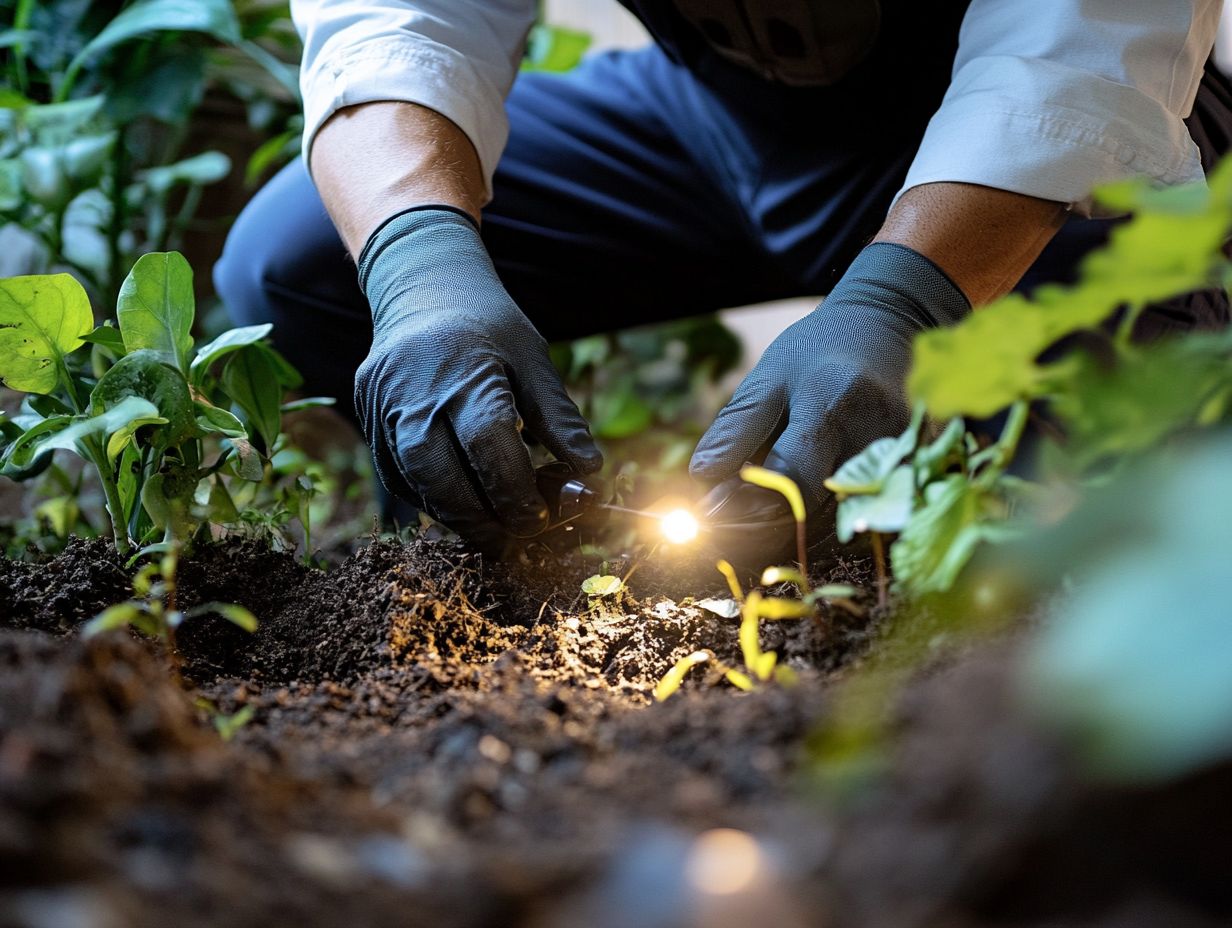
Before the pest inspection, crafting a detailed checklist can empower you to prepare effectively. Focus on potential entry points and signs of pest activity.
Take the time to examine your property for any cracks, gaps, or holes in walls, foundations, and around windows and doors that could act as gateways for unwanted guests.
Documenting visible signs of pests such as droppings, chew marks, or nests provides inspectors with valuable insights, enhancing the thoroughness of their evaluation.
Decluttering your home helps with a clearer inspection. This proactive approach increases the likelihood of swiftly identifying problem areas, ultimately leading to a more effective pest management solution.
Don t wait for pests to invade act now!
Choosing a Pest Control Company
Selecting the right pest control company is essential for effective pest management. It ensures that you receive a comprehensive pest control plan tailored to your unique needs.
Factors to Consider
When evaluating a pest control company, consider factors such as their experience, ways to deal with pests, and customer reviews. These elements help ensure you select a reliable provider.
Pay attention to their certifications, as these reflect professionalism and adherence to industry standards. A firm’s expertise in handling specific pests showcases their capability in addressing unique infestations.
For instance, if you re dealing with termites, opting for a company that specializes in termite control is the smarter choice. Customer satisfaction ratings offer insights into previous clients’ experiences, shedding light on a company’s punctuality, effectiveness, and overall service quality.
These elements empower you to make an informed decision, leading to a pest-free environment you can truly enjoy!
Questions to Ask
Before hiring a pest control company, it s essential to ask the right questions about their services, methods, and the qualifications of their pest management professionals.
Delve into the company s experience in the industry. How long have they been in business? Do they have expertise with specific pest issues? Understanding the pest control plans they offer is crucial, especially if they provide customized strategies tailored to your home’s unique needs.
Inquire about the effectiveness of their pest management approaches. Are they utilizing eco-friendly options, or do they lean towards traditional chemicals? Gathering this information will give you peace of mind and pave the way for a successful resolution to your pest problems.
Frequently Asked Questions
What is the importance of pest inspections?
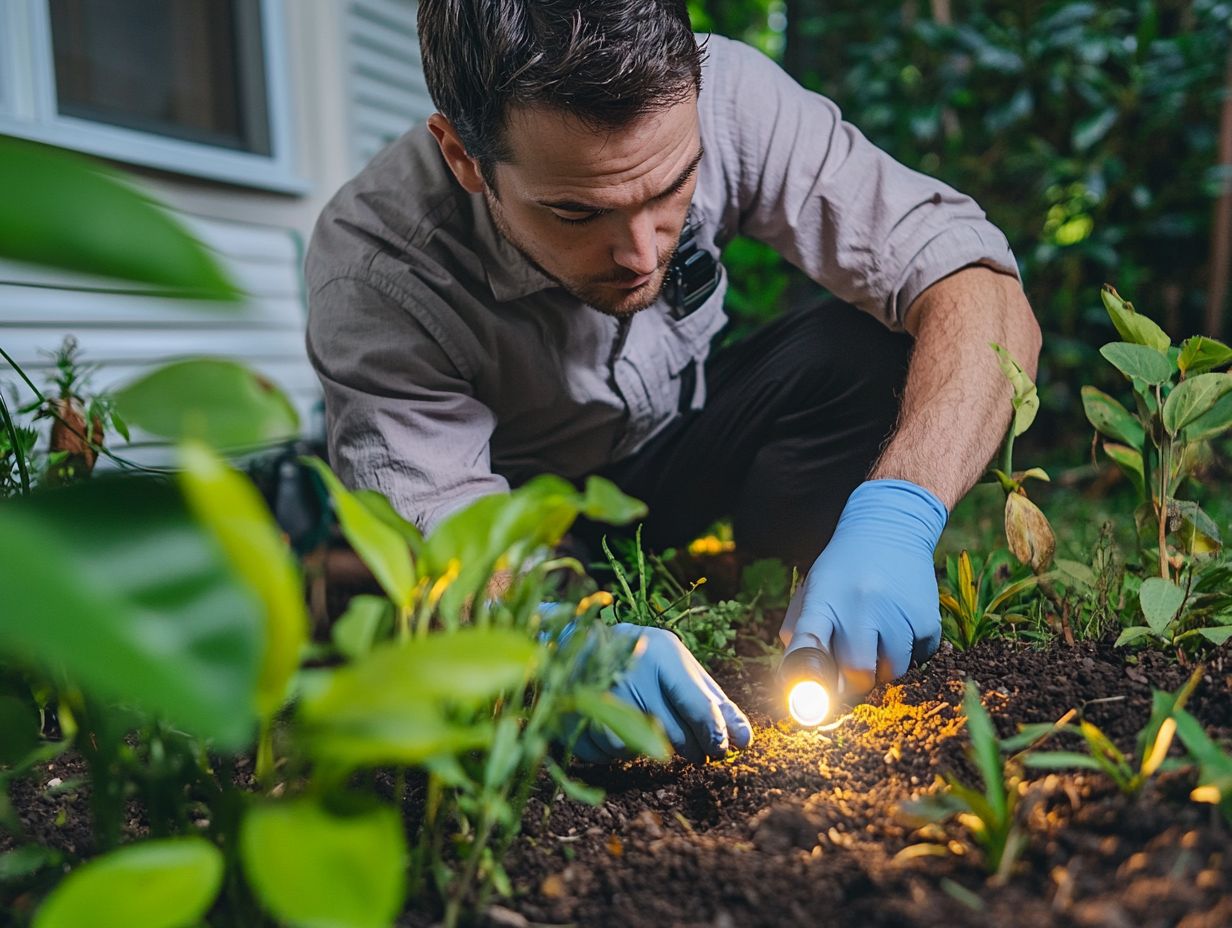
Pest inspections are important because they help identify and prevent potential pest infestations in a property. Understanding the importance of home inspections can save homeowners from costly repairs and damages caused by pests.
How often should pest inspections be done?
It is recommended to have pest inspections at least once a year, but the frequency may vary depending on the location and type of property. For example, properties in areas with high pest activity may require more frequent inspections.
Who should conduct a pest inspection?
Professional pest control companies or licensed home inspectors are trained to conduct thorough pest inspections. It is important to hire a qualified and experienced inspector to ensure accurate and reliable results.
What types of pests are typically included in a pest inspection?
A pest inspection may cover a wide range of pests such as termites, rodents, ants, cockroaches, bed bugs, and more. The inspector will also look for signs of damage caused by these pests.
What are the consequences of not getting a pest inspection?
Not getting a pest inspection can lead to potential infestations, causing structural damage and health hazards. This can result in expensive repairs and may decrease the value of the property.
Are there any precautions to take before a pest inspection?
Clear any clutter or debris around the property to allow for a thorough inspection. Inform the inspector of any past pest issues or treatments done on the property.
Contact us to schedule your inspection today!

